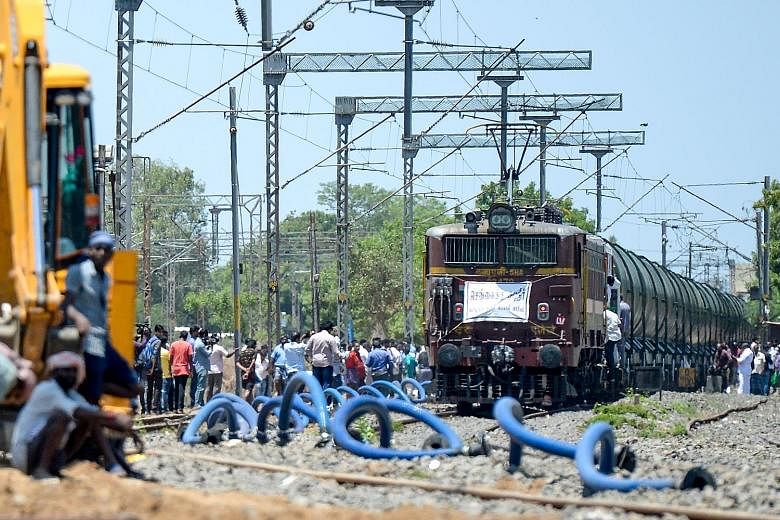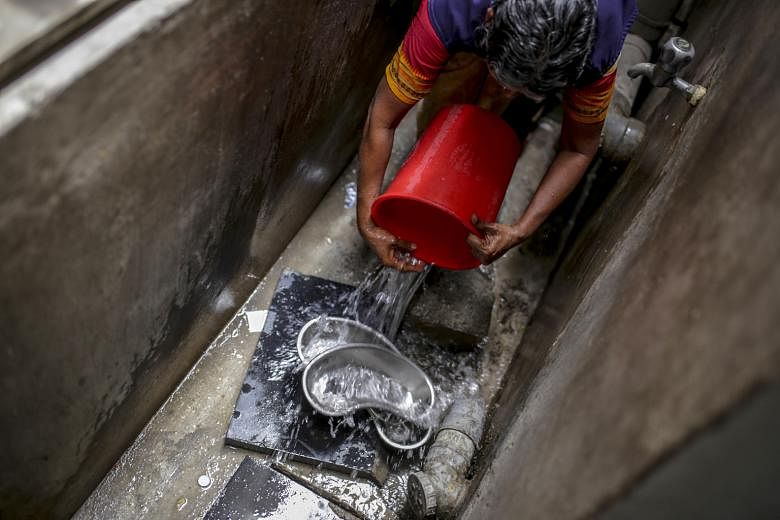CHENNAI • Along with doctors in Indian cities facing unprecedented water shortages, Mr T.N. Ravisankar in Chennai is praying for rain - and soon.
Treating patients will "depend on God's mercy" if water supplies in India's fourth-largest metropolis are not replenished shortly, said Mr Ravisankar, chairman of Sudar Hospitals, a chain of four medical centres with 150 beds.
Piped water at his hospitals has already dried up, and even the more expensive water trucks he now relies on may be unavailable soon in the state of Tamil Nadu.
"The cost escalation will have to be passed on to patients, who will have to spend more," Mr Ravisankar said. "If the situation continues, after a month we won't be able to serve patients."
Failed rainfall last year and delays in this year's annual monsoon have left nearly half of India facing drought-like conditions, according to the South Asia Drought Monitor. Tamil Nadu is trapped in a "severe dry" cycle along with other states like Karnataka, Andhra Pradesh and Maharashtra.
Up north, India's capital New Delhi has recorded the worst monsoon delay in 45 years. With piped water supply available to less than a fifth of Delhi homes, political parties have traded barbs with the state government over the lack of planning for water-truck supplies to large swathes of the city.
As the impact of climate change worsens, water is shaping up to be a serious economic risk in Asia's third-largest economy. Desertification, land degradation and drought cost India about 2.54 per cent of gross domestic product in 2014-15, according to a study last year by the environment ministry.
India has witnessed widespread droughts in four of the past five years, and the government forecasts that per head availability of water will fall by 35 per cent next year from 2001 levels. Hospitals are suffering as the cost of water rises.
Almost all of Chennai's hospitals are now completely dependent on the more than 5,000 privately owned tankers that ferry water around the city every day, according to Mr N. Nijalingam, president of the Tamil Nadu Private Water Tanker Lorry Owners' Association.
But it is becoming tougher to source water even from 100km away, he said. "If the situation continues, after a month we won't be able to supply water even to the people who can pay a huge sum for a tanker of water," he said.
The price of a 12,000-litre water truck has soared from 1,200 rupees (S$23.80) in April to as high as 6,000 rupees since water shortages began, The News Minute website reported.
Smaller nursing homes and clinics in Chennai, a medical tourism hub, have been hit harder than larger hospitals that have more money, according to Dr Balaji Venu Gopal, a vascular surgeon at Apollo Hospitals in Chennai.
"Nobody has come out openly to raise the issue and seek government support so far," said Dr Venu Gopal. "But the crisis is definitely cutting the profit margin of the medical industry."
WASHINGTON POST


